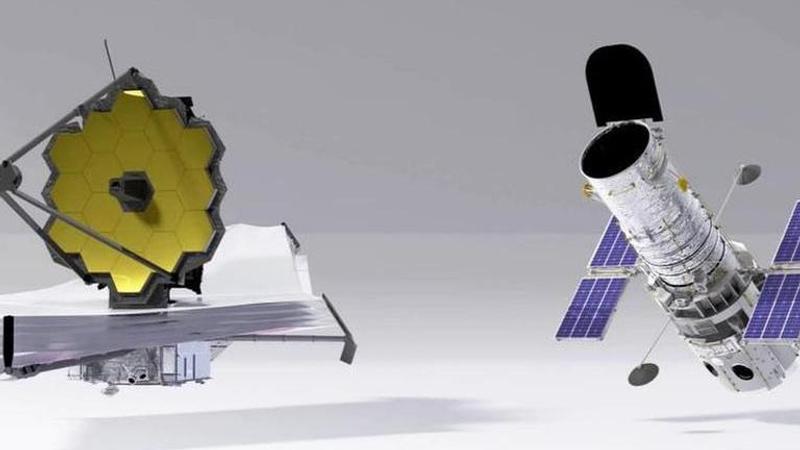Published 16:56 IST, December 21st 2021
James Webb Space Telescope vs Hubble Space Telescope; how do they compare?
Hubble is now over three decades old and Webb is all set to take over as the prime observatory that will uncover unforeseen secrets of the universe.

The James Webb Space Telescope has been endorsed as the most complex and the most powerful space telescope ever built. Before Webb came into existence, the scientists from NASA and other space agencies mostly relied on the Hubble Space Telescope for cosmic discoveries.
However, the latter is now over three decades old and Webb is all set to take over as the prime observatory that will uncover unforeseen secrets of the universe. In order to have a clear idea of their capabilities. Let us take a look at what sets them apart and what keeps Webb ahead in the exploration game.
Timeline
The Hubble Space Telescope was launched in 1990 and it has allowed astronomers to gather detailed images of planets and galaxies, and solve many of the universe's great mysteries. The Hubble has served the scientific community for over 30 years whereas the Webb telescope is just about to launch on December 24. However, it is worth mentioning that even Webb’s development took decades of development and a budget of nearly $10 billion. NASA states that the new telescope has a minimum lifespan of five years which might get extended to ten years.
(Image: NASA)
Instruments
What is most intriguing about the Webb telescope are its instruments which provide it with an edge over Hubble. Webb has four scientific instruments along with a 21-foot-tall mirror that measures 6.5 metre in diameter as compared to a smaller 2.4 metre wide mirror in Hubble. A bigger mirror will offer the telescope a bigger collecting area and also provide a wider field of view of the universe. While the Hubble is the size of an average school bus, the Webb telescope, with its fully unfolded heat shields measures equally as a tennis court.
(Image: NASA)
Orbit
The Hubble telescope orbits the Earth relatively closer than the orbit that has been decided for the Webb telescope. Hubble is fixed at an orbit that is just 570 kilometres from Earth whereas Webb will be sent 1.5 million kilometres away at a location called the second Lagrange point or L2.
Area of expertise
While Hubble observes light in Ultraviolet, visible and near-infrared wavelength, Webb has been designed to observe the light only in Near- and mid-infrared wavelength. Infrared light is the type that has travelled billions of kilometres in the universe and got stretched as the universe expanded over time. Collecting infrared light will help in major cosmic discoveries as these expanded beams will carry information about their point of origin during the early days of the universe, thus offering us a peek into the past.
Image: NASA
Updated 16:56 IST, December 21st 2021





